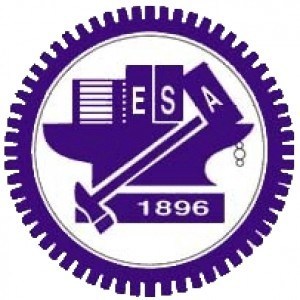Photos of university
Photonics at National Chiao Tung University offers a comprehensive and cutting-edge educational program designed to equip students with a solid foundation in the science and technology of light. This interdisciplinary field encompasses the study of optical devices, laser systems, optical communications, quantum optics, and photonic materials. The program aims to prepare students for careers in various high-tech industries, including telecommunications, biomedical imaging, information processing, and advanced manufacturing, as well as fostering innovation and research in photonics technology.
Throughout the curriculum, students will gain in-depth knowledge of fundamental physics principles related to electromagnetic waves and optical phenomena, alongside practical skills in designing, analyzing, and deploying photonic devices and systems. Courses cover a wide range of topics, such as optical waveguides, laser physics, optical sensors, photonic integration, and nonlinear optics. The program emphasizes hands-on laboratory training, allowing students to engage directly with the latest optical equipment and experimental techniques, thus bridging theoretical concepts with real-world applications.
Research opportunities are abundant, with access to state-of-the-art laboratories and collaborations across academia and industry. Students may participate in projects related to fiber optic communication networks, quantum information science, optical signal processing, and emerging photonic technologies. The program also encourages interdisciplinary approaches, integrating principles from materials science, electrical engineering, and applied physics to foster innovative solutions.
Graduates of the Photonics program will be well-positioned to pursue advanced degrees, engage in research, or enter the workforce in sectors driven by optical innovations. The program is designed to cultivate analytical thinking, problem-solving abilities, and technical proficiency, preparing graduates to contribute meaningfully to the rapid advancements in photonics technology and to meet the evolving demands of the global high-tech landscape. With a strong emphasis on both theoretical foundations and practical skills, the Photonics program at National Chiao Tung University offers an excellent platform for aspiring optical scientists and engineers to develop their careers in this dynamic and vital field.
National Chiao Tung University Courses
- Introduction to Flat Panel Display
- Geometrical Optics
- Introduction to Optical Systems
- Optoelectronics/Display Device Physics
- Optical Fiber Communications
- Electronic Circuits for Display
- Fourier Optics
- Photonics (I)
- Solar cell
National Yang Ming University courses
- Introduction of Laser Engineering
- Optical Microscopy for Living Cells
- Applied Optics
- Basics of Photonic Materials and Technologies
- Introduction to Biophysics
- Molecular Modeling of Biomolecules
- Medical Biophysics
- Chemical and Medical Biophysics
- Biophysics(II)
- Fundamentals and recent trend in Sensors
- Introduction of Nanobiotechnology
- Semiconductor Optoelectronic Devices and Displays
- An exercise in technical reading and writing
- Surface Plasmonics for Biology
- Introduction of Photonics Engineering
- Biomedical Optics System
- Bioimaging for molecular sensing within living cells
- Image Analysis for Cell Biology
- Bio-research application of Photonics technique
- Special Topics in Biomedical Image Analysis
- Medical Optics
- Introduction to Medical Molecular Imaging Agents and Nano-biomedical Materials
- Principle of the molecular biological imaging
- Principle of multimodality medical imaging
- Optical coherence tomography–principle, design, and applications
- Application of microscopic techniques in life science
- Photonics-based techniques for clinical diagnostics and applications
National Tsing Hua University courses
- Biomedical Application of photonics
- Fundamentals of Biophotonics
- Drug Controlled Release
- Digital image processing
- Molecular Spectroscopy
- Nonlinear Optics
- Sensing and Actuation in Miniaturized Systems
- Biophotonics for Microfluidic Chips
- Optical Fiber Communication
- Dynamics of Semiconductor Lasers and Their Applications
- Quantum Optics
- Laser and Nonlinear Optics Laboratory
- Relativistic Photonics with emphasis on free-electron laser
- Nonlinear Optics
- Optical Design
- Photonics (I)
- Photonics (II)
- Laser Engineering
- Computational Methods for Optoelectronics
- Integrated Photonic Devices
- Laser Dynamics
- Nonlinear Optical Wave Guides
- Ultrafast Optics
- Selected Topics in Ultrafast Optics
- Fiber-Optic Sensing Technology
National Central University Courses
- Biomolecular Recognition Engineering and its Applications in Biosensor
- Diffusion Optics Tomography
- Integrated Optics
- Electromagnetic Principles of Photonics
- Fourier optics
- Laser physics
- Introduction to Biomedical Imaging
- Simulation in Optics
Requirements
- International students who have earned or will earn a master's degree at accredited universities in Taiwan or other countries are eligible to be considered for admission
- The official diploma must be translated into either English or Chinese when the original one is not issued in either language
- One copy of official transcript (with grades of every semester and explanation of grading system)
- Translation of official transcript (if applicable)
- Two letters of recommendation
- Passport or other proof of Nationality
- Alien Resident Certificate - ARC (if any)
- Confidential Financial Statement
- TOEFL or IELTS
- Proof of Chinese proficiency (recommended)
The PhD program in Photonics at National Chiao Tung University offers diverse financing options to support its graduate students throughout their research and academic pursuits. Funding sources primarily include university scholarships, government grants, research assistantships, teaching assistantships, and external fellowships. The university provides various scholarship opportunities aimed at highly qualified students, which may cover tuition fees, provide stipends, or both. These scholarships are often awarded based on academic excellence, research potential, and financial need, encouraging outstanding students to pursue advanced studies in photonics.
In addition to scholarships, research assistantships are a common form of financial support within the program. Graduate students may work on faculty-led research projects related to laser technology, optical communication, photonic materials, or nano-photonics. These assistantships typically provide a stipend along with health insurance benefits and might include tuition waivers for teaching or research duties. Teaching assistantships are also available, where students contribute to undergraduate education and laboratory instruction, earning monthly stipends that help offset living expenses.
External funding opportunities include government-sponsored fellowships and industry-sponsored research grants. The Taiwanese government, through agencies such as the Ministry of Science and Technology, offers funding schemes aimed at fostering scientific research and innovation, which PhD students can apply for. Industry collaborations may provide financial backing for specific research projects, further supporting the students’ academic pursuits and facilitating practical training in photonics applications.
Furthermore, many students receive partial fee waivers or fellowships that recognize their research excellence and potential contributions to the field. The university’s commitment to internationalization also means there are scholarships available specifically for international students, helping to attract talented researchers worldwide. Overall, the financing framework for the Photonics PhD program is designed to ensure that talented students can focus on their research without undue financial burdens, fostering academic achievement and innovation in the rapidly evolving field of photonics.
Photonics at National Chiao Tung University (NCTU) is a comprehensive and advanced program focusing on the science and technology of light. This program is designed to equip students with a deep understanding of optical physics, optical engineering, and applied photonics technologies. It covers a broad spectrum of topics including the generation, manipulation, transmission, and detection of photons, enabling graduates to contribute to various high-tech industries such as telecommunications, laser manufacturing, biomedical imaging, and optical sensors. The curriculum incorporates both theoretical foundations and practical hands-on experience, emphasizing cutting-edge developments in photonics research and industry applications.
The program is structured to foster innovation and critical thinking, encouraging students to engage in interdisciplinary projects that integrate physics, electrical engineering, materials science, and computer science. Facilities at NCTU are well-equipped with state-of-the-art laboratories and research centers that facilitate advanced experimentation and development in photonics devices, integrated optical circuits, and quantum optics. Collaboration with industry partners and research institutions provides students with internship opportunities, real-world problem solving, and exposure to the latest technological advancements.
Graduates of the Photonics program are prepared for careers in research and development, product design, and technical consultancy in both academia and industry. They are also well-positioned to pursue further studies at the graduate level or participate in innovative projects that push the boundaries of current optical science. The program at NCTU emphasizes both foundational knowledge and technological skills, aiming to cultivate experts capable of leading the future of photonics technology and contributing to Taiwan's position as a leader in high-tech innovations.
Overall, the Photonics program at National Chiao Tung University is recognized for its rigorous coursework, cutting-edge research opportunities, and strong industry linkages, making it an excellent choice for students interested in exploring the dynamic field of light-based technology.


